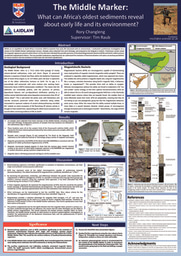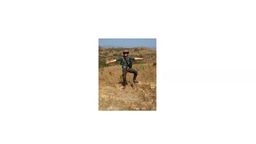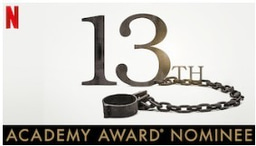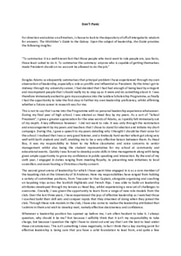In my blog post last summer, I recounted a series of adventures that my Laidlaw colleague, Lot Koopmans and I had in the game reserves and government facilities of South Africa. I talk about how I encountered challenges ranging from undertaking fieldwork in a different cultural setting, to gaining access to South Africa’s Council for Geoscience rock core shed. The latter proved particularly challenging as, even though I booked weeks in advance, I turned up to discover that nobody knew who I was or, rather surprisingly, why I was there. If you want exciting Indiana Jones-style tales of men with guns in government warehouses, wild animals around every corner, and hiking through the nearly-impenetrable forest to find signs of ancient life, then this is not the post for you. To avoid bitter disappointment, I direct you to my previous writings entitled “Rocking All Over the World – Ancient Life in South Africa” on the 23rd August 2019, which is a far more enjoyable read.
Sadly, this summer I am not writing my blog post from O.R. Tambo International Airport in Johannesburg after a two-week adventure across the Kaapvall, but instead from my conservatory on a rather dreich day in the Scottish Borders at the half-way point of my summer-at-home research project. Nevertheless, I am not going to be writing extensively today about how much coronavirus has impacted my life and how I had to change so many of my plans because you are probably quite tired of reading that sort of thing after 98 days of a global pandemic. What I will say is that my experiences in South Africa actually prepared me surprisingly well for dealing with the lack of certainty that the global health crisis has brought. As a self-confessed forward planner, lack of certainty can be very stressful for me. In South Africa, I experienced constant uncertainty, ranging from car hire, to access to the core shed and sampling, to finding and accessing field sites. To overcome this, I channelled some of my over-planning into preparing a series of contingency options, just to have some ideas in reserve. However, I also became a lot more chilled, accepting that actually by pushing myself far out of my comfort zone, I no longer had the luxury of certainty. Instead, by being open to opportunities and being proactive in both seeking them out and pouncing on them when they presented themselves, I achieved so much more than I would have if I had been restricted by a rigid plan in a very fluid environment. This is something that I think we have all experienced in the time of Covid-19, which has pushed us all out of our comfort zones. All certainty has vanished. This gives a change in the ways which we forward plan and personally has reminded me about some of the feelings I experienced in South Africa. I have found myself going back to my priorities and grounding myself in my values whilst keeping an open mind. This enables me to be flexible when opportunities do present themselves and enables me to achieve a different set of goals to the ones I originally envisioned for my second summer of Laidlaw Research. These have involved learning French, undertaking a fitness regime, and giving myself more time to relax and enjoy life, instead of working so hard at my research that I eventually just burn out. This has enabled me to gain a lot more life skills and experience out of my second summer of research, instead of the more academic-centric still set I originally envisioned.
My project has changed its scope too. I am still looking at early life and how it interacted with its environment, but instead at looking at the interactions with ocean chemistry 2.5 billion-year-ago, I am instead looking at life in rocks quite a bit older. This all came about because of the struggles in the core shed in South Africa. Ultimately, I really didn’t think that my project would work, and so I came up with a back-up plan, to collect samples in the field from a geological unit called the “Middle Marker”. At 3.47 billion-year-old, this unit has the second oldest generally accepted evidence of life on Earth, and so I was very very excited when I got the opportunity to collect some samples from it on the one day in the field that Lot and I allocated to my project. These samples were brought to Caltech in December 2019 by my advisor, Tim Raub, to have their magnetic properties investigated. What he found was really quite special. These rocks represent perhaps the earliest best-preserved record of rock magnetisation discovered on Earth. Furthermore, the data collected shows a strong potential for having evidence for the magnetotactic bacteria. These are single-celled organisms that biologically produce magnetic minerals like magnetite within their cells to navigate using Earth’s magnetic field. Finding evidence for these bacteria supports that argument that the last universal common ancestor was a magnetotactic organism, which has resounding implications for our understanding of the base of the tree of life and how early life evolved on Earth. Therefore, this summer I am reading extensively around the Middle Marker, performing a literature review upon this unit in the hopes of writing up a paper with my advisor in the coming months on our findings.
A surprising feature of this summer of research that I have observed when comparing to last summer is that now I feel as if I am being treated interacted with by my advisor and other academics as an academic equal, instead of an undergraduate student. Whereas previously I would have been the one always asking advice and questions, now the conversation flows both ways. This is not to say that I have not felt respected by researches before, I have certainly always felt respected within my Laidlaw experience. However now it feels different. Now I feel as I am being treated as an academic equal, who can confidently lead aspects of the project, and propose and drive my own visions and ideas. This is a refreshing realisation, as I feel as if my academic journey involving leadership within the Laidlaw program has had a tangible impact on my academic experience.
Furthermore, I have discovered how much I enjoy sharing my research with others from a variety of backgrounds, even if they don’t ask in detail about it, a surprisingly common occurrence when talking about rocks. I was recently asked to give a brief presentation on my Laidlaw leadership journey so far at the Laidlaw Global Online Induction. After getting over the initial novelty of talking to over 200 people on Zoom, a very weird experience when you feel like you are just talking to a computer screen in your living room, I found that I really enjoyed sharing my experiences, stories, and advice. This is something that I will actively seek out in the future, an opportunity facilitated by the confidence in public speaking and presentation that the Laidlaw Scholarship has helped to develop in me.
As a final point, I would like to take my final Laidlaw blog post as an opportunity to thank everyone in the Laidlaw team along with Lord Laidlaw himself for investing so much time and money in the future of every scholar. As you may have realised through reading this post, I got so much out of my experiences in South Africa and continue to talk about my adventure there and time with Laidlaw at every opportunity. I’m looking forward to continuing this summer of research, even if it was not quite as I had originally planned, and continuing my journey to become a more resilient, authentic, and active leader that the Laidlaw Scholarship has initiated.
I will leave you with one thank you for making it to the end of this blog post, and a final plea to read my one from last year if you want to be actually entertained.







Please sign in
If you are a registered user on Laidlaw Scholars Network, please sign in